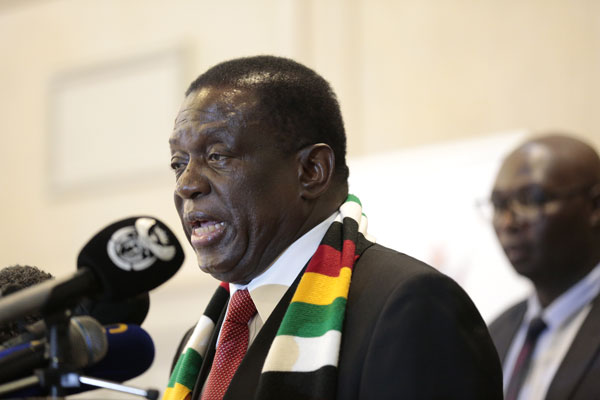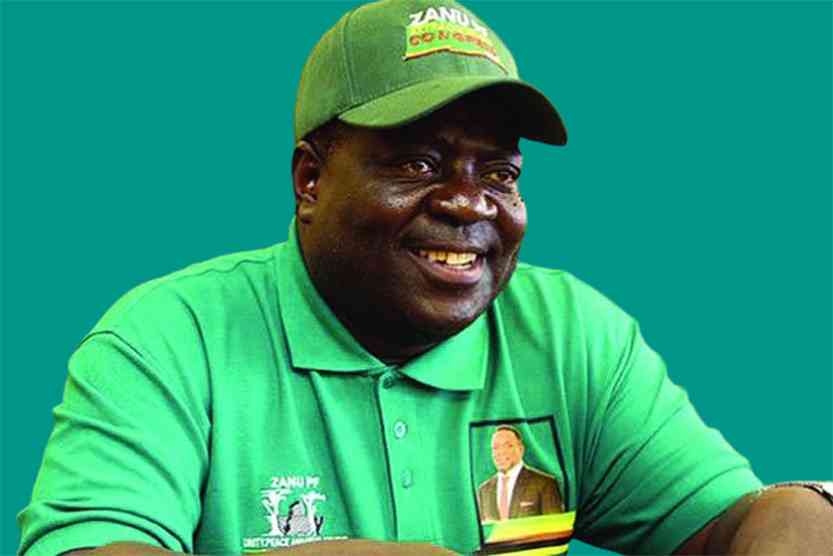
Corruption watchWITH TAWANDA MAJONI
President Emmerson Mnangagwa and his party, Zanu PF, have a ticking bomb on their lap. And they look quite cozy with that.
The so-called “mabhemba” wars — a group reference to violence involving militias who use all manner of weapons that include machetes, guns, swords, spears, bows and arrows, knives, as well as clubs — are festering in Midlands province. They are spreading to other parts of the country too.
Most of the violence has tended to mostly centre on the illegal extraction and sale of gold. Rival groups raid and fight each other for the gold. They maim and kill without remorse. And they do it with impunity too. The Midlands city of Kwekwe is the epicentre of the violence, but it’s happening in numerous other places that include rural areas.
In the rural areas, the militias fight for control of land, minerals while also settling family, ethnic and community disputes in a bloody way.
At the best, the police is helpless because the gangs are controlled by influential politicians with vested interests in illegal gold mining. At worst, the cops are getting bribes and conniving with the militias. As a result, most of the cases of murder and grievous harm to rival militias are being swept under the carpet. The judiciary is not helping matters either. Its officers are taking bribes to throw the crimes, but there is also a chance that, like the police, they are enmeshed in the “mabhemba” or machete wars and take home some rich pickings.
It’s not as though the goons behind these wars are unknown. The gang leaders walk around town and elsewhere with a spring in their step because they know that nothing will happen to them. They are the foot soldiers of the powerful politicians-cum-businesspeople. They pay their godfathers with gold and foreign currency and thus acquire immunity from arrests and prosecution. The militias talk about who their godfathers are with much ease, and have repeatedly named one Cabinet minister and senior Zanu PF members as the real warlords in Midlands.
There are two ominous aspects to these militia wars. One, as already averred, they have a political dimension. The gangsters are controlled by Zanu PF politicians. That’s why they have been attacking and, in some cases, killing opposition supporters in the past. They have, of late, also been targeting musicians who they regard as being anti-Zanu PF.
- Chamisa under fire over US$120K donation
- Mavhunga puts DeMbare into Chibuku quarterfinals
- Pension funds bet on Cabora Bassa oilfields
- Councils defy govt fire tender directive
Keep Reading
Two, the militias mostly have their origins in the illegal exploitation of natural resources — mainly gold in this case.
Now, that combination is worrying. Look around Africa for starters. The more than one hundred militias that have operated on the continent are or have been led by individuals with political ambitions. It’s been like that wherever you find militias. DRC, Somalia, Eritrea, Ethiopia, Kenya, Libya, Nigeria, Algeria, you name it. The lead warlords are always gunning for a share of political power. As they do that, they control regions or areas that are rich in natural resources that they use to launder money and fund their activities.
It would always be unfair and naïve to assume that the Midlands machete wars will remain as the ad hoc waves of violence targeting rival groups whose members go about wearing tattered clothes smeared with brown mud and looking like scarecrows. The truth is, they now pose a real national security threat. The wars are spreading unchecked. The militias are sponsored. They are busy creating a culture of violence that will repeat itself in all places where illegal, artisanal and established mining is taking place.
After that, they will spread to fights for the control of land, factories and ethnic groups.
But most worryingly, they are likely to degenerate into political militias. All you need are crazy and ambitious politicians who will see an opportunity to gain relevance through the use of organised violence. In their present form, the militia wars are centralised around Zanu PF. They are being led by a few individuals whose ultimate loyalty is to the ruling party.
Things may not stay the same, though. In the aftermath of the 2017 coup, Zanu PF looks fragile. Mnangagwa has not been able to sew the party together as much as his predecessor, Robert Mugabe, did. Current factional fissures can lead to splits. Once you have well-defined splits, opportunists will merge to lead various political groups.
That’s the time when some of them will look at the opportunity of turning the militias into more organised war gangs that will inevitably fight for control of territories that are rich in mineral and other natural resources.
There is another very present danger. In Africa, a coup almost always sires another coup. Zimbabwe is not an absolute exception. As it stands, there has been talk of fierce behind-the-scenes jostling for power in the post-coup period. The military, clearly, has a heavy presence in the current political dynamics here. Where the army has a say in where political power goes or doesn’t go, you know a coup is brewing on the horizon. It was like that during Mugabe’s time, and look at what happened in 2017.
More directly, there are reports — predictably refuted, of course — that Mnangagwa and his deputy, Constantino Chiwenga, the former army boss — are not the best of friends despite ganging up to remove Mugabe.
Let’s say Chiwenga, a former general who would still enjoys strategic support in the army, gets really crazy and does a Mugabe on Mnangagwa.
That might present a very good chance for the militias to turn into a solid political militia.
It would be easy for the coup to be ethnicised. Mnangagwa is from the very cauldron of the machete violence, the Midlands, which is dominated by the Karanga ethnic community. Chiwenga is from Wedza in Mashonaland East, which is predominantly Zezuru.
Mnangagwa and/or his loyalists would then draw reinforcements from the Midlands-based militias to stage a war against Chiwenga in retaliation.
It’s easy for politicians from the Midlands who are loyal Mnangagwa to sell the hypothetical coup as a war against the Karanga.
Ethnic — pretty like religious conviction is a ready tool that warlords use.
It’s unflattering on the current president that he has in the past been accused of being the main godfather of some of the violent militia groups in the Midlands.
If that is true, then it would be easy to morph the gangs into an all-out rebel group backing Mnangagwa against Chiwenga and the Zezurus and whoever their other sympathisers might be.
And it’s also unflattering that the president has remained quiet as the militias spread mayhem in the Midlands and, now, other provinces.
Midlands is his home province and Kwekwe, his hometown.
Add to that, the fact that Owen Ncube, the man he made State Security minister last year, has repeatedly featured as a likely actor in this script of violence.
But things must done differently. The president and his government must get the police to act on this sweltering violence and stop the corruption related to it. And civil society, the opposition, human rights defenders, the Zimbabwe Human Rights Commission and the legislature must also play that part before the bomb explodes right in our faces.
Tawanda Majoni is the national coordinator at Information for Development (IDT) Trust, a member of the Global Investigative Journalism Network (GIJN), and can be contacted on tmajoni@idt,org.zw.










